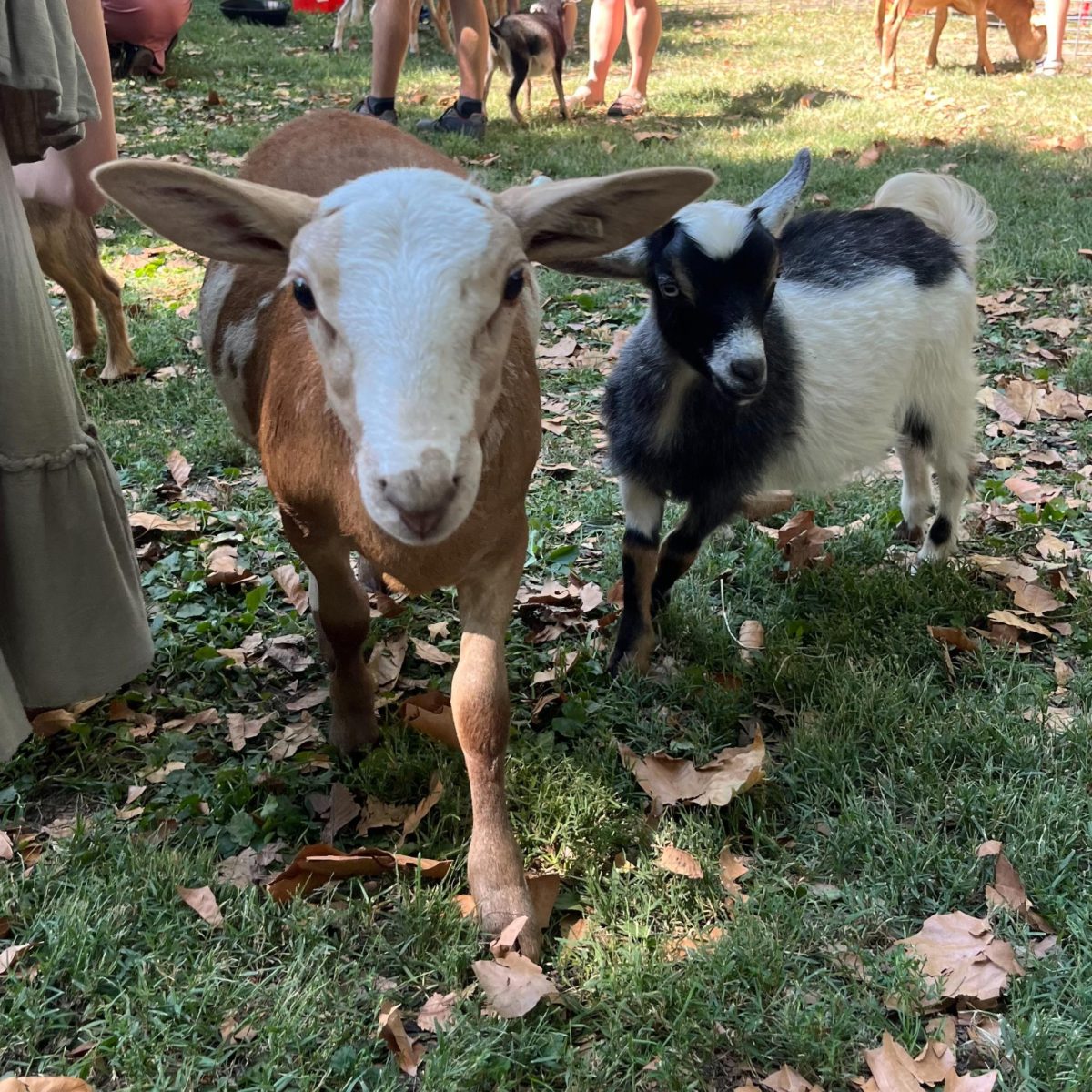Where can you pet a baby goat, enter a “best tomato” contest, stomp grapes into juice and sample fermented vegetables you didn’t know were possible to ferment all in one place? It’s not in Gilmore Girls’ fictional Stars Hollow — it’s the Pittsburgh County Fair.
After five years of hosting the Pittsburgh Fermentation Festival followed by a two-year hiatus due to COVID-19, western Pennsylvania project Ferment Pittsburgh brought the event back under the county fair name in 2023. This year’s fair, a partnership with Grow Pittsburgh, the National Young Farmers Coalition and the City of Pittsburgh, took place on Sunday, Sept. 15, in the North Side’s Allegheny Commons Park.
The festival may no longer have fermentation in the name, but the funky food preservation method certainly made its presence known at the festival. At their booth, Pittsburgh’s Community Cultures offered fermented sodas made from ingredients like sumac, elderberry and pawpaw, the last of which incurred a $1 “pawpaw tax” for how long these native North American fruits took the owner to harvest. Other fermented foods included pickles from Picklesburgh cornerstone The Pickled Chef, kraut and fermented beets from Prescription Foods, beer from local breweries and many more.
Some fairgoers were of a woolier sort. Riley Carter and her boyfriend of Ross Farm in Eighty Four, Pennsylvania, brought some of their sheep to the fair and held several live shearing demonstrations.
“[My boyfriend] is a sixth-generation sheep farmer,” Carter said, “so he’s been doing this for a while.”
The fair also featured a free petting zoo with baby goats, calves and pigs and a pair of corgi puppies. Fairgoers could enter the pen and feed the animals, even holding milk bottles for the goats and calves.
The petting zoo proved to be a source of delight for the many kids at the fair. Mount Lebanon resident Hayley Haldeman and her husband decided to attend the fair with their two young children after reading about the event.
“They are having a blast,” Haldeman said. “We checked out the petting zoo. My son thought goats eat people, so we told him that wasn’t the case, which was great.”
One booth sold a close cousin of the bacteria and yeasts involved in most kitchen fermenting — mushrooms. Elaina Brown, owner of the East End urban farm Steel City Spore, displayed an array of grow kits at her table.
“They’re basically just a very accessible way for people who are vegan, or not, to get a large amount of mushroom without paying per pound each time,” Brown said, adding that each kit grows three to four pounds of mushroom over the course of a month and a half.
Brown said the massive and distinctly pink oyster mushroom on her table drew in curious visitors.
“Just a lot of people with really great interest. I mean, the mushroom does cause pause,” Brown said.
The mushroom was far from the only singular feature of the fair. At the “emotional composting” station, visitors stirred their deepest thoughts written on scraps of paper into the compost heap. Local maker Husk Brooms offered a broom making activity. There was a wild clay pinch pot event, a fermentation culture swap and a band called the Howling Mob.
For Haldeman, the range of activities was unexpected.
“It’s a little different than what you would typically see at a farmer’s market,” Haldeman said. “It seems like it’s a broader and more diverse array of booths.”
Perhaps most unusual, though, was how many of the fair’s activities were free. Unlike festivals that require admission fees or standing in lines to buy things for hours before going home, Pittsburgh County Fair attendees could dye shoelaces with indigo or make their own sesame oil at no cost. From spoon carving to a “learn to felt” station to free custom flower crowns to educational booths about worm composting and seed saving, the fair emphasized learning and fun.
Haldeman appreciated the accessibility of the county fair in the heart of the city.
“It’s really cool that the idea of a county fair can occur in an urban landscape,” Haldeman said.


